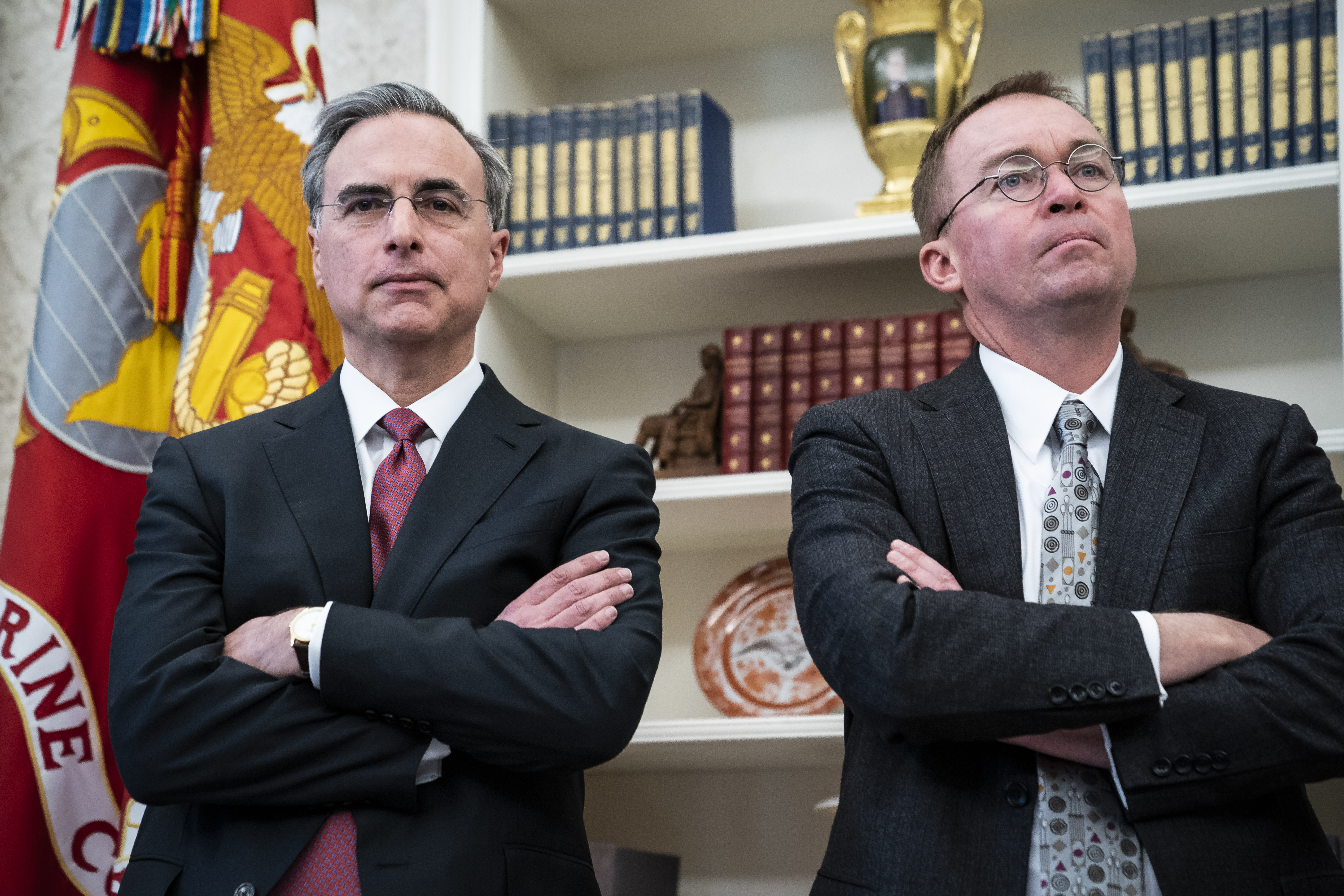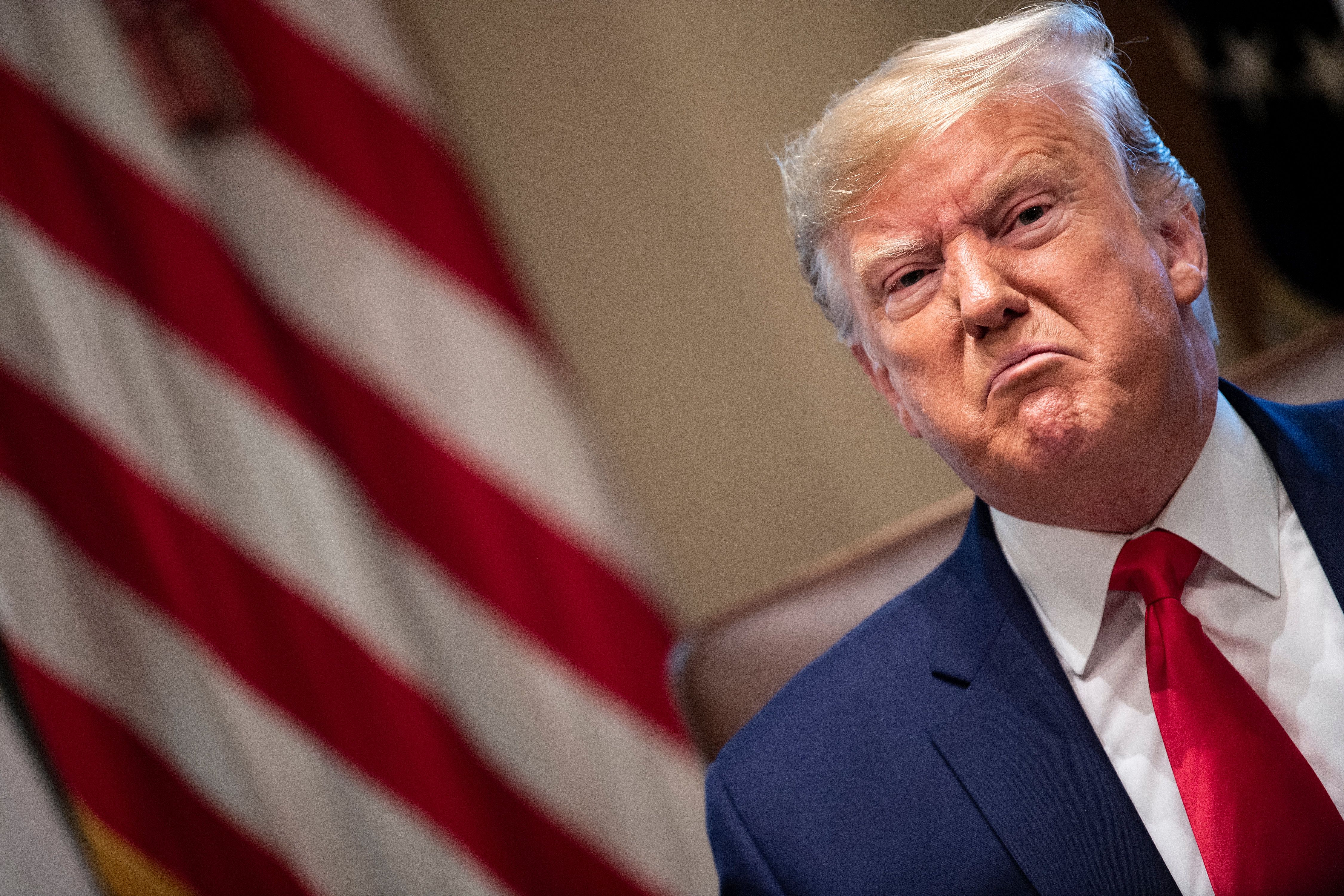In between playing five hours of golf Saturdayand getting booed at a baseball game Sunday, Donald Trump caught up on his other favorite sport: playing military. U.S. service members in Syria cornered and killed Abu Bakr al-Baghdadi, the titular leader of ISIS, as Trump spectated; the following morning, in advance of the Sunday talk shows, he gave a triumphant press conference about the operation. Skeptical reporters came away from Trump’s endzone dance with some key insights: He’d overshared sensitive information that could endanger future operations against “high-value targets”; he’d concocted details about Baghdadi’s “whimpering, crying and screaming” death that he could not have possibly witnessed; he offered no long-term vision or strategy for how to achieve stability, much less peace, in the Middle East, even as experts noted that decapitating the leadership of a networked insurgent group and its ideology, now as in 2011, was “mostly strategically irrelevant.”
Trump’s oratory may be devoid of cogent reasoning, but one can discern hints of his worldview in the ersatz word salad he tosses out. The main ingredient on Sunday was “oil.” In his speech and in extended answers to reporters’ questions, Trump mentioned oil an incredible 22 times; by contrast, he mentioned Baghdadi only 18 times.
This is not a new obsession for Trump. “He has a short notebook of old pledges, and this was one of the most frequently repeated pledges during the campaign: that we were going to take the oil,” former CIA analyst and Middle East hand Bruce Riedel told The New York Timeslast weekend. “And now he actually is in a position where he can quote, take some oil.”
This is nothing new for the United States, either. I first heard the chant “No blood for oil!” as a middle-schooler in 1990, watching the buildup to the first Gulf War against Saddam Hussein. In that era and ever since, American presidents have insisted that the protection of strategic resources in the Middle East, while of national interest, was secondary to fighting tyranny, defending allies, and limiting access to weapons of mass destruction. Many of us took these rationales to be disingenuous, a fig leaf of virtuous rhetoric jammed over the U.S. power elite’s vulgar appetites for capital and commodities. But they were accepted by a majority of Americans over the past three decades, because the projection of virtues is always more acceptable than an open hunger for vice. It’s why, even as U.S. tanks and infantry rolled into southern Iraq in spring 2003, Americans joked that the war should have been called “Operation Iraqi Liberation,” or OIL; it’s why we clamored to know the closed-door energy allegiances and outside compensation schemes of Vice President Dick Cheney, the war cheerleader and former Halliburton CEO.
In a vacuum, you might imagine that a populist nationalist president—a man who brands himself as a swamp-drainer and has been helpfully described by pundits as a “dove”—would argue that oil is not so precious as to be worth sending armed Americans overseas to “secure” its sources in perpetuity. But we are not in a vacuum; we are in Trump’s world of stupidity, avarice, and transactionality.
When asked if the Baghdadi operation—which was complicated by Trump’s unilateral withdrawal from northern Syria—gave him second thoughts about that withdrawal, he said it was about the oil (bolded emphasis mine):
Look, we don’t want to keep soldiers between Syria and Turkey for the next 200 years. They have been fighting for hundreds of years. We’re out. But we are leaving soldiers to secure the oil. Now, we may have to fight for the oil. That’s OK.Maybe somebody else wants the oil, in which case they have a hell of a fight.
But there’s massive amounts of oil. And we’re securing it for a couple of reasons. Number one, it stops ISIS, because ISIS got tremendous wealth from that oil. We have taken it. It’s secured. Number two—and, again, somebody else may claim it, but either we will negotiate a deal with whoever is claiming it, if we think it’s fair, or we will militarily stop them very quickly.
When asked who else he wanted to thank for their counsels on the Baghdadi operation, Trump briefly mentioned Republican Senator Lindsey Graham, then expounded on oil and the companies he’d like to use to distribute it, because the U.S. deserves war spoils:
I don’t want to leave 1,000 or 2,000 or 3,000 soldiers on the border. But where Lindsey and I totally agree is the oil. The oil is, you know, so valuable. For many reasons. It fueled ISIS, number one. Number two, it helps the Kurds, because it’s basically been taken away from the Kurds. They were able to live with that oil. And number three, it can help us, because we should be able to take some also.
And what I intend to do, perhaps, is make a deal with an ExxonMobil or one of our great companies to go in there and do it properly. Right now it’s not big. It’s big oil underground but it’s not big oil up top. Much of the machinery has been shot and dead. It’s been through wars. But—and—and spread out the wealth. But no, we’re protecting the oil, we’re securing the oil. Now that doesn’t mean we don’t make a deal at some point.
But I don’t want to be—they’re—they’re fighting for 1,000 years, they’re fighting for centuries. I want to bring our soldiers back home, but I do want to secure the oil. If you read about the history of Donald Trump, I was a civilian. I had absolutely nothing to do with going into Iraq and I was totally against it. But I always used to say if they’re going to go in—nobody cared that much but it got written about—if they’re going to go in—I’m sure you’ve heard the statement because I made it more than any human being alive. If they’re going into Iraq, keep the oil. They never did. They never did.
When asked about the pitfalls of his Syria withdrawal, Trump argued that the lives of people in the Middle East were less valuable to him than securing and extracting fossil fuels for profit. “Now, I will secure the oil. That happens to be in a certain part. But that’s tremendous money involved. I would love to—you know, the oil in—I mean, I will tell you a story in Iraq,” he said. “I don’t have a Syria pullout.” He continued:
I just don’t want to guard Turkey and Syria for the rest of our lives. I mean, I don’t want to do it. It’s very expensive. It’s very dangerous. They have been fighting for centuries. I don’t want to have my people, 2,000 men and women, or 1,000, or 28. We had 28 guarding. I said, I don’t want them there anyway. I don’t want them.
I heard recently that Iraq, over the last number of years, actually discriminates against America in oil leases. In other words, some oil companies from other countries, after all we’ve done, have an advantage in Iraq for the oil. I said keep the oil. Give them what they need, keep the oil. Why should we—we go in, we lose thousands of lives, spend trillions of dollars, and our companies don’t even have an advantage in getting the oil leases.
Trump’s oil obsession isn’t entirely his fault: His military advisers, already spinning from having indulged his ill-informed edicts on Korean military exercises, Iranian strike plans, the Space Force, transgender service members, deployments to the Mexico border, and a military parade, now contended with a disastrous Syria withdrawal that endangered U.S. troops and fostered criminal atrocities by invading forces. So they pleaded to keep U.S. troops in place by appealing to Trump’s penchant for petroleum, saying the derricks and fields needed to be protected from enemies. “This is like feeding a baby its medicine in yogurt or applesauce,” one U.S. official said—a distressing comment on the weakness of civilian controls over the military under a proven half-wit civilian commander.
They meant well, but they helped Trump burnish his role as developer-in-chief, even as he sells Syrian Kurds and regime opponentsdown the Euphrates River. The United States is now officially the globe’s hired muscle for commodities protection; its explicit foreign policy is now “Yes, blood for oil!” I doubt Trump has ever studied Smedley Butler, the decorated Marine veteran-turned-pacifist who in 1933 summed up his three-decade military career as “being a high class muscle-man for Big Business, for Wall Street and for the Bankers,” but I’m sure that Trump would read Butler’s War Is a Racket as a how-to pamphlet. An oil field under U.S. troops’ feet is “a valuable fucking thing,” as another disgraced grifter-in-chief might have said. To Trump, it’s great personal and international leverage, more valuable than values; more valuable, in fact, than Syrian or American lives.


